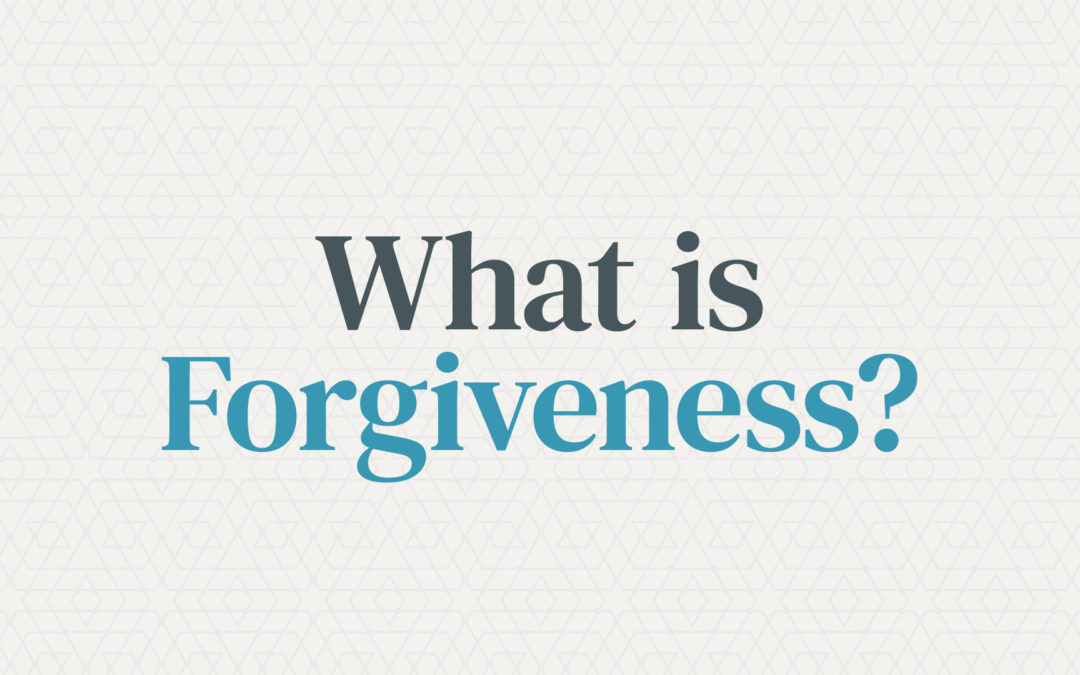Forgiveness is a topic that is taught, discussed, analyzed, and even argued among Christians. The Bible plainly teaches that forgiveness is a must for salvation. God must forgive us, and we must forgive others. So, in my mind, two questions arise. What does it mean to forgive and how should I forgive?
I saw an article on forgiveness that started out by saying. “Forgiveness means different things to different people.” This makes me wonder, does forgiveness have varying degrees? Can we partially forgive? Does God expect us to forgive like He forgives? I have seen forgiveness defined as “a deliberate or conscious decision to release feelings resentment or vengeance toward a person or a group that has harmed you.” I like that definition because forgiveness must be a choice we make and it’s not usually an easy one. If forgiveness means different things to different people, then forgiveness cannot have a hard and fast definition.
Have you ever heard someone say, “I will forgive but I will never forget?” I understand that as human beings, our mind is conditioned to hang on to negative experiences that results in pain. This is a defense mechanism. Our minds warn us about situations that have caused us pain and agony in the past so that we don’t repeat it and suffer that hurt again. We remember people who have hurt us. Often times, forgiving without forgetting is not forgiving at all but just an excuse to avoid one who people say they have forgiven.
Let’s look at some passages from the Bible that discuss forgiveness. Let’s start at Matthew 6:14, 15–14 For if you forgive men when they sin against you, your heavenly Father will also forgive you. 15 But if you do not forgive men their sins, your Father will not forgive your sins. Jesus makes it plain here that forgiveness of our fellow man is as important to our salvation as anything else. It is a matter of the heart.
Next look at Matthew 18:21–21 Then Peter came to Jesus and asked, “Lord, how many times shall I forgive my brother when he sins against me? Up to seven times?” Peter seemed willing to forgive, he just wanted to know how many times he had to. The Jews taught you forgave a person three times, so, Peter doubled it and added one for good measure and thought that would surely be enough and besides in the Hebrew number system 7 was the perfect number. Notice the reply of Jesus in Matthew 18:22–22 Jesus answered, “I tell you, not seven times, but seventy-seven times.” Some versions here read, “seventy times seven.” The idea here is not to keep track but to stress that we are to forgive and infinite number of times or as often as we need to forgive. Peter was still thinking in the limited scope of the law as opposed to the unlimited scope of grace.
Paul addresses forgiveness in Colossians 3:13–13 Bear with each other and forgive whatever grievances you may have against one another. Forgive as the Lord forgave you. He says that we should forgive all grievances. We must hold on to nothing. The key, of course, is when Paul says to forgive as the Lord forgave you.
So, how does God forgive? Look at Hebrews 8:15–For I will forgive their wickedness
and will remember their sins no more. This tells us that God forgives us fully and completely. He does not hang on to our sins. He forgets them. If He forgets our transgressions, then each time we approach Him for forgiveness, it the first time to Him. So, it stands to reason then, if we are to forgive like God, shouldn’t we strive to forgive and forget as well?
Friends, if we desire an eternal heavenly home, we must forgive one another just like God forgives us day in and day out! Complete and total forgiveness of others won’t be easy, especially if our minds are not set on things above.
Read Matthew 18:21-35

